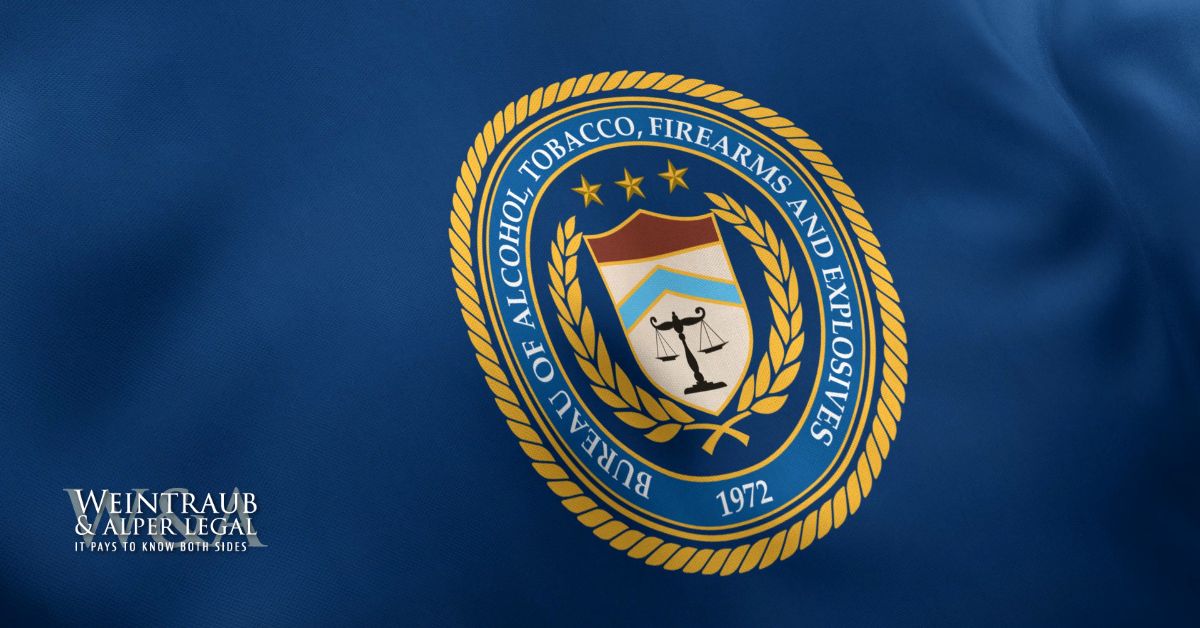Understanding ATF Jurisdiction and Enforcement
When it comes to safeguarding public safety, certain federal agencies carry responsibilities that many of us rarely consider in our day-to-day lives. But the role they play becomes critical when facing legal matters that fall under their watchful eye. One such agency is the ATF, whose authority stretches far and wide, influencing how laws around firearms, explosives, and more are enforced.
Role of the ATF in Law Enforcement
The Bureau of Alcohol, Tobacco, Firearms and Explosives (ATF) is tasked with enforcing federal laws related to its namesake areas, adding layers of regulations aimed at protecting public safety. Their work spans oversight of firearms and explosives, investigation of arson crimes, enforcement of taxes tied to alcohol and tobacco, and even assisting in counter-terrorism initiatives. Simply put, the ATF’s focus is as broad as it is vital.
Because federal laws often overlap with state regulations, the ATF collaborates closely with local agencies. For example, firearm laws require compliance at both the state and federal levels, making it critical for individuals and businesses to understand these intricacies to avoid legal complications.
Common Areas of Investigation
ATF investigations often hone in on illegal firearms trafficking, misuse of explosives, and the contraband cigarette trade. Each area represents larger safety and economic concerns. Firearm trafficking, for instance, can fuel violent crime, while tax evasion in cigarette sales pulls resources from public welfare programs. Explosive misuse and arson bring immediate threats to community safety, which elevates their priority status for the agency.
These investigations show not only the consequences of illegal activity but also how closely public safety and federal regulation intersect. Whether it’s tracing the origins of illegal firearms or preventing disasters caused by explosives, the ATF’s objectives align with maintaining community well-being.
Overview of Common ATF-Related Charges
Firearm-Related Offenses
Many ATF cases center around firearm-related crimes, such as illegal possession, trafficking, or sales. Situations like selling guns without a Federal Firearms License (FFL) or skipping background checks during transactions often lead to federal charges. Offenses like possession of firearms by prohibited individuals—including felons or those under restraining orders—are also heavily scrutinized.
Background checks are a critical part of the firearm transaction process. Systems like the National Instant Criminal Background Check System (NICS) help prevent unauthorized sales, and violations tied to skipping or falsifying these checks are heavily prosecuted. For anyone navigating this complex system, understanding compliance requirements is essential to avoiding steep penalties.
Explosives and Arson Charges
Handling explosives or engaging in arson carries significant legal weight. Charges often involve illegal possession, manufacturing, or misuse of explosives, while arson typically relates to intentional property damage. Not only do these offenses risk lives, but they also underscore the seriousness with which federal authorities, including the ATF, approach dangerous conduct.
The penalties for these charges can range from significant fines to lengthy prison sentences, highlighting the importance of ensuring compliance with safety regulations. Legal consequences often reflect both the intent and the scale of damage caused, reinforcing the need for vigilance in handling such situations responsibly.
Legal Defense Strategies for ATF-Related Charges
Challenging Evidence and Search Warrants
When faced with ATF-related accusations, the validity of search warrants and evidence can define a defense. If law enforcement oversteps by conducting an unlawful search or relying on poorly substantiated probable cause, the evidence obtained may be excluded. The Fourth Amendment protects individuals from unreasonable searches, making this an area of critical concern in legal proceedings.
By scrutinizing the circumstances of searches and seizures, defense attorneys can dismantle flawed cases. Whether through invalidating overly broad warrants or questioning the authenticity of collected evidence, this strategy can shift the trajectory of a case.
Questioning Intent and Knowledge
In many cases, the accused can build a defense around whether they knowingly committed an offense. For instance, proving ignorance about the legality of certain firearms or lack of awareness of contraband possession can challenge the prosecution’s claims. These arguments focus on the mental state, or mens rea, of the accused, often leading to reduced charges or even case dismissals.
Navigating such defenses demands deep legal expertise. With the right representation, defense teams can bring context and clarity to situations otherwise clouded by assumptions of guilt.
Engaging Legal Representation
Choosing the Right Defense Attorney
Federal charges related to ATF investigations require experienced criminal defense attorneys who understand the complexities of these cases. The right attorney will have a proven track record in handling similar matters, knowledge of federal proceedings, and expertise in the specific statutes tied to firearms, explosives, and contraband.
Beyond strategy, strong legal counsel should prioritize open communication and a deep commitment to the client’s rights. Because the stakes are often high—including significant prison terms or fines—having an empathetic and knowledgeable advocate can make all the difference in navigating the process.
Expert Witnesses and Investigators
Building a solid defense in ATF-related cases often requires the input of expert witnesses and investigators. Specialists in firearms or explosives can challenge the technical evidence presented by the prosecution, offering alternative narratives rooted in scientific facts. Similarly, private investigators can uncover new evidence that paints a fuller picture of the circumstances surrounding a case.
These resources aren’t just supplemental; they’re vital to constructing a defense strong enough to counter the weight of federal accusations.
Taking Control of Your Legal Situation
ATF-related charges carry legal and personal challenges, but the right representation can help you take control of your situation. With the complexities of federal laws and regulations at play, having a knowledgeable attorney guide you ensures your rights are protected and the best strategies pursued.
At Weintraub and Alper Legal, we have years of experience handling federal cases, including those involving the ATF. Our firm is committed to providing the tailored support and expertise you need in the face of significant charges.
Contact us today at (404) 907-1536 to discuss your case and take the first step toward legal resolution.



